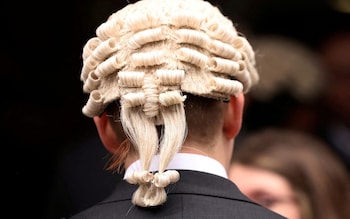Baby boomer homes will have to be sold off in a “fire sale” as their families are hit by unaffordable inheritance tax bills, wealth experts warn.
Baby boomers will pass on £1.2 trillion in inheritance over the next few decades. But a combination of soaring property values and a lack of preparation could leave their loved ones in financial peril at the very height of their grief.
Inheritance tax (IHT) can run into hundreds of thousands of pounds and must be paid within six months of death. Unless the deceased left enough behind in savings, their cash-poor descendants could be unable to afford their own inheritance.
Experts believe this could lead to a flood of homes hitting the market, as the next generation is forced to sell the family silver and take “punitive” loans to pay huge tax bills they were completely unprepared for.
It comes as The Telegraph is campaigning to abolish inheritance tax as the death duty increasingly hits more and more ordinary families.
As Britain’s troops came home from the Second World War, expanding the population was probably just a by-product of the first thing on many of their minds. Back home after six years of battle and bloodshed, they were finally reunited with the loved ones they left behind and the lives they’d put on hold. The next three years heralded a birth rate not seen on our shores since the early 1920s. Over a million babies arrived in 1947 alone as the baby boomer generation was set firmly in motion.
After a slight dip, it rose steadily throughout the 1950s, before the 1960s welcomed more than 900,000 children a year. The number again topped a million in 1964, before the transition to generation X and the much lower birth rate we see today.
Ever since, baby boomers – born between 1946 and 1964 – have become known for savings, home ownership and accumulating assets. But with a life expectancy at the time of their birth around 67 for men and 72 for women, they’re also starting to die.
Around one in four are thought to be millionaires, while last year estate agent Savills found that over 65s hold around 43pc of housing wealth. Their children could inherit £90bn in the next decade alone and there are fears that passing on such substantial estates could lead to unintended consequences, both for those they loved the most and the country as a whole.
First introduced in 1694 to fund Britain’s wars, IHT is now a 40pc “death tax” charge on someone’s estate.
Everyone gets an allowance of £325,000 before anything is due, with the possibility of another £175,000, known as the nil-rate band, if you’re bequeathing a property to your children or grandchildren.
There’s nothing to pay on what you leave to a spouse or civil partner and, even if you’re widowed when you die, your late partner’s allowance can still be used. This means many estates can be worth £1m before IHT is due, although they start losing allowance if they’re valued over £2m.
However, 40pc of anything you inherit above your allowances must go straight to the taxman. Neither allowance has increased since 2020 and they’re both frozen until at least 2028. There were hopes Chancellor Jeremy Hunt would scrap IHT in this year’s Budget, but he didn’t.
As a result, HMRC is already reporting that families handed over a record £7.5bn in IHT last year – an increase of £400m – and forecasts suggest it could rise another £2bn before 2030.
Experts fear this is all combining to create a major problem for the UK housing market.
When someone dies, the executors of a will have to apply for probate to legally deal with the estate. However, it often isn’t granted before IHT becomes due. Although you can pay it with cash from the estate, such as the deceased’s savings, you cannot sell their assets before probate is granted.
This can mean people are not only forced to sell, they’re also pushed into taking expensive, long term loans until completion – all at a time of mourning.
Harry Bell, of wealth managers Charles Stanley, said: “Being an executor is not an easy job and it’s very stressful. Often, they’re the children of the deceased, so they’re already in a fragile and difficult position and are constantly reminded they’ve lost a loved one.
“To add insult to injury, the IHT bill has to be paid within six months and probate usually takes longer than this. This often means money must be borrowed at punitive rates to cover the bill. If there isn’t enough cash in the estate, investments and property will have to be sold to cover the bill. This can be a long process, all while the funds borrowed are accruing more punitive interest.”
Chris Rudden, of investment platform Moneyfarm, said: “The average 35-44 year old has less than £7,000 in savings and they’re the first generation that’s poorer than the one before.
“Property prices are generally very high now, particularly in the south, where there are 600,000 properties over £1m. If you’ve suddenly got £100,000 IHT to pay and only £20,000 in the bank, it’s not going to get you very far.
“Many, many estates will have one of these properties, possibly even two, and would be way above the threshold with other assets. A lot of the next generation don’t have the money sitting around to pay the tax, so they may have to sell the assets they’re inheriting.
“That will negatively affect house prices, both for those selling and those not. We saw in 2008 and 2009 what falling house prices can do, particularly in the US. Either the Government will change the policy on IHT, or people may have to foot the bill for something they can’t afford.
“We could be looking at a property fire sale and the next generation is sleepwalking right into it.”
Experts also warn that a potential £1m allowance gives a false sense of security, particularly as it tumbles to £325,000 for someone who’s unmarried and not leaving their estate to descendants. They say many baby boomers seem unaware that along with their substantial wealth, they’re leaving behind a ticking time bomb.
This is because the £325,000 allowance is almost entirely consumed by the average UK house price of £281,000. Since the last IHT increase in 2020, UK house prices have jumped 22pc.
The average house price in the South East is £373,000, shooting up to £503,000 in London. According to Nationwide, a detached property now fetches £460,000 on average. It’s not unusual for boomers to have houses worth double this or more, along with other assets and savings – which quickly exhausts any IHT allowances.
Mr Bell said: “Some people assume that just ‘rich’ people pay estate duties, however this simply isn’t the case. It’s often very normal people who’ve had a house that has appreciated in value and some sensible investments.
“If the value of your property and investments are increasing above the threshold, your IHT position is getting worse every year. For every single pound that your estate grows, 40p of that is going to the tax man, effectively punishing your children or beneficiaries for your success and the growth of your estate.
“There’s potentially a very nasty surprise waiting for executors and beneficiaries, who are often the children of the deceased. It is a time bomb.”
There are ways around IHT, but they involve meticulous planning and honest conversations about death. Advisers are urging people to start those now.
Mr Bell added: “The worst thing is that paying IHT is a choice. There are perfectly legal and legitimate ways of avoiding IHT, so it’s a great shame when those who would have taken action to reduce their bill, if only they knew how to, failed to do so.”
Disclaimer: The copyright of this article belongs to the original author. Reposting this article is solely for the purpose of information dissemination and does not constitute any investment advice. If there is any infringement, please contact us immediately. We will make corrections or deletions as necessary. Thank you.



